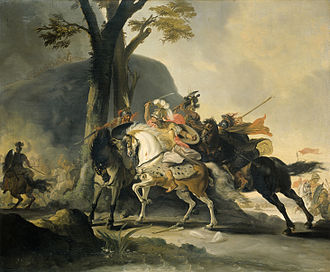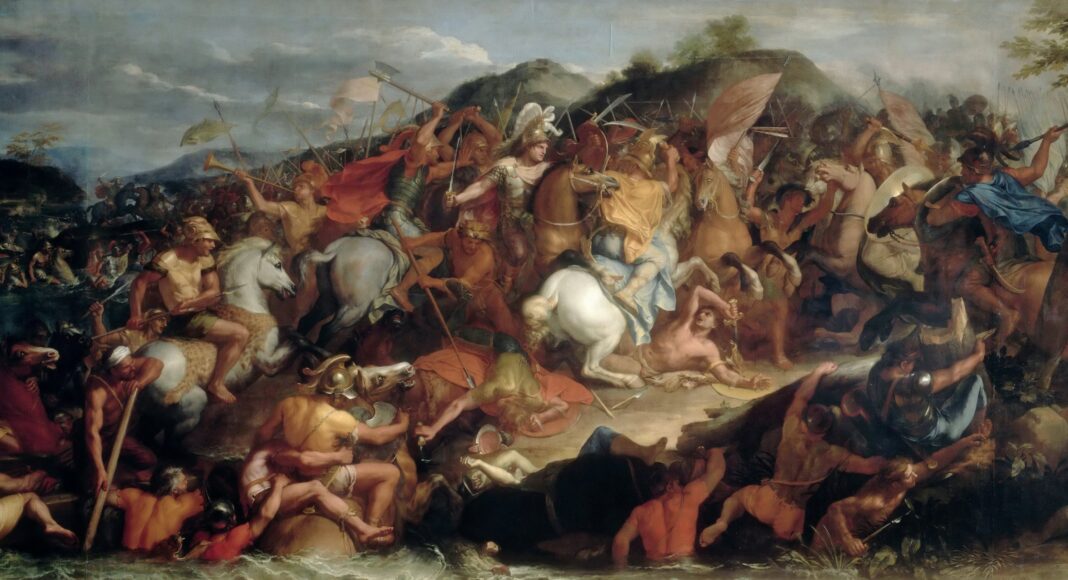By Ilektra Takuridu
Today, May 22, 334 BCE, Alexander the Great wins the Battle of Granicus, bringing the Persian Empire its first crushing defeat. The Battle of the Granicus River, was a clash between Alexander the Great and the Persian Empire, it was the first of three major battles between the two forces. Fought in northwestern Asia Minor, near the site of Troy, Alexander routed the armies of Asia Minor’s Persian satraps to claim a heroic victory.
Alexander was the King of the Hellenic League, a major union of Greek city-states and Macedonia. This battle would pave the way for further conquests and was a great moment in Greek history. The Persian Empire was one of the biggest empires of its era and was natural enemy of the Greeks.

The Battle itself took place near the ancient city of Troy on the banks of the Granicus River. Alexanders army mainly consisted of infantry around 32,000 with only 5000 Cavalry, whilst the Persian army was predominantly cavalry 10 – 20 thousand with some infantry. The Granicus is also noteworthy because it is one of the first battles on record in which cavalry strength was primarily dominant. Alexander attacked immediately, which caught the Persians off guard. The battle was fought very strategically, and Alexander used his army to its full capability. He deployed troops to attack the Persians right wing who heavily reinforced this side and focused their troops there. The attack on the right was just a feint so the Alexander could attack the less defended middle. He smashed through the centre of the Persian line, and Alexander himself killed many Persian noblemen within the fight. Once the Persian forces saw their leaders being slain, they began to retreat. The battle was won by Alexander the great, having only suffered roughly 400 casualties, it was a notable victory as the Persians suffered close to 4000 deaths.

After the battle Alexander buried the deceased with full military honours and attended their funerals with the entire army. Alexander’s care for the dead and injured families showed his greatness, one way to help the families of the deceased was to excuse them from paying taxes and fees. The soldiers were buried with their weapons (armour was costly and was often recycled) and he visited the injured and listened to their battle stories. Alexander sent 300 suits of Persian armour to the Parthenon in Athens from the spoils of his victory. He sent the suits to remind the Greeks that this success was part of the revenge against the Persians and also to reawaken Greek excitement.
Alexander’s courageous leadership gained him the “palm for courage”. He fought at the heart of the battle, risking his own life giving him his first great victory over the Persians. This victory opened the door to western and southern Asia Minor and placed Alexander in the category of one of the greatest leaders of all time. Alexander the Great is adored in Greece and complimented around the world for his leadership and conquests. His glory began on that day in 334 BCE when he and his army defeated the Persian army.

